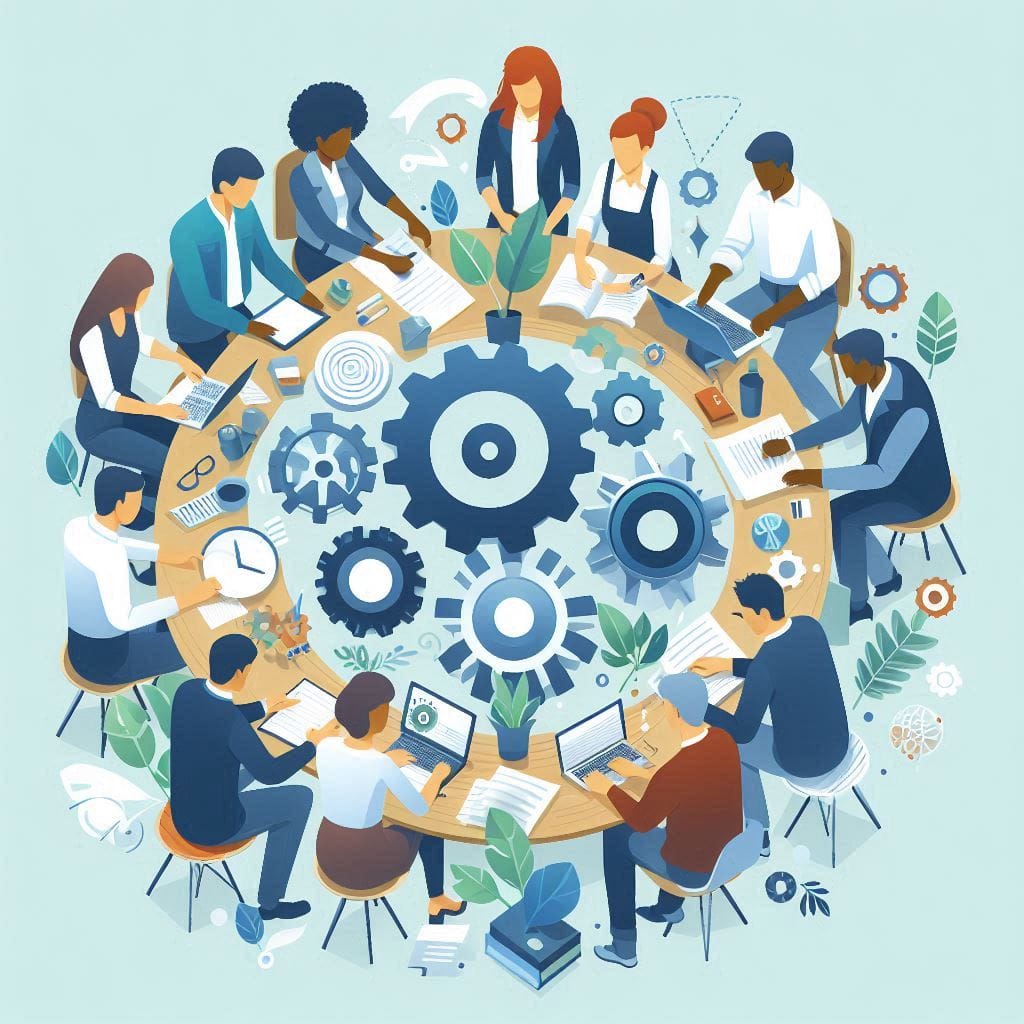Understanding the Root, Not Just the Fruit: How a Collective Mindset Can Unite Nations, Societies, and Organizations
Introduction
Why do people act the way they do? The answer lies not in their actions but in the roots that shape them. Too often, we focus on the symptoms—the “fruits”—of societal and organizational challenges without addressing the underlying causes. This approach only deepens divisions and perpetuates problems.
In this post, we’ll explore how neglecting a collective mindset divides nations, societies, and organizations. More importantly, we’ll discuss how understanding and addressing root causes can pave the way for unity, empathy, and lasting change.
The Problem: Ignoring the Roots
During my years in South Africa, I often observed how Nigerians were labeled as troublemakers, even becoming threats to the locals. This perception persists, but have we ever paused to ask why? Why do a majority of Nigerians act in certain ways? Instead of criticizing their attitudes or blaming their actions, shouldn’t we consider the root cause of their behavior?
This isn’t just true for Nigerians—it applies to South Africans and every culture. For example, why do many South Africans share a similar outlook or attitude? We can often identify their origins without them saying a word. But instead of understanding these cultural patterns, we rush to judge what is different.
The Bible says, “When the foundation is destroyed, what can the righteous do?” (Psalm 11:3). This profound truth reminds us that people’s actions are often a result of the environments and systems that shaped them. Poor leadership, whether from parents, religious figures, or governments, has a lasting impact. The attitudes we criticize today didn’t form by chance; they were molded by years of neglecting a deeper issue: the power of a collective mindset.

Addressing root causes for lasting change.
The Impact of Poor Leadership
Poor leadership—whether in families, religious institutions, or governments—shapes attitudes and behaviors in profound ways. When leaders fail to build strong foundations, the ripple effects are felt across societies and organizations.
For example, when governments neglect education and infrastructure, communities struggle to thrive. When parents or religious leaders fail to model empathy and integrity, younger generations grow up without the tools to build healthy relationships or contribute positively to society.
We are quick to blame the effects, but we rarely address the causes. Do we really think acting without understanding will minimize the problem? More often, it magnifies it.

The consequences of neglecting systemic issues.
The Solution: A Collective Mindset
The solution lies in fostering a collective mindset—a way of thinking that prioritizes unity, empathy, and collaboration toward shared goals. A collective mindset encourages us to look beyond individual actions and address the root causes of societal and organizational challenges.
In my book, The Power of a Collective Mindset, I explore how this approach can transform nations, societies, and organizations. It’s a call to action—a call for understanding, empathy, and systemic change.

The power of a collective mindset in action.
Practical Steps to Foster a Collective Mindset
Here are three actionable steps to help you foster a collective mindset in your community or organization:
1. Understand Cultural Patterns
Avoid judging behaviors; instead, seek to understand their origins. Ask questions like, “What experiences or systems shaped this behavior?”
2. Address Systemic Issues
Focus on improving leadership, education, and community systems. Strong foundations lead to healthier societies and organizations.
3. Promote Empathy and Collaboration
Encourage open dialogue and teamwork. When people feel heard and valued, they’re more likely to contribute positively.

Steps to foster a collective mindset
Conclusion
To truly make a difference, we must evaluate the causes, understand them, and create solutions to address those roots. While we may not eradicate every negative effect, we can minimize them and pave the way for positive change.
That’s the core message of The Power of a Collective Mindset. It’s a call to action, a call for understanding, empathy, and systemic change. Together, we can make our society better—not by criticizing, but by building a foundation of love, understanding, and collaboration.
Let’s work together for a brighter future. Will you join me on this journey?

A brighter future through collective mindset
Call to Action
Explore the Book: Dive deeper into these ideas with The Power of a Collective Mindset. Get your copy here.
Share Your Thoughts: What steps will you take to foster a collective mindset in your community or organization? Let us know in the comments below!
Subscribe: Don’t miss out on more insights and strategies for leadership, personal growth, and collective success. Subscribe to our newsletter.

Trending
How a Collective Mindset Can Unite Nations, Societies, and Organizations
Using the PEEM Framework

About me

I’m Olamilekan Isreal, a thought leader, author, and speaker passionate about empowering individuals and organizations through strategies. Through this blog, I share actionable insights to help you unlock your potential and achieve transformative success.


Light of Israel: Empowering growth, inspiring purpose, and creating lasting impact in individuals and communities.
Services
Personal Development
Life Coaching
Business Consulting
Career Coaching
TLOI Initiative
Crisis Management
Useful Links












